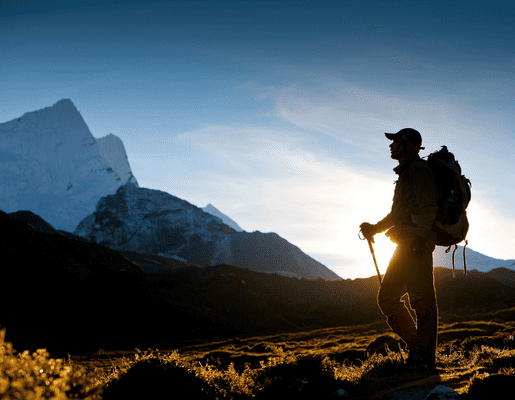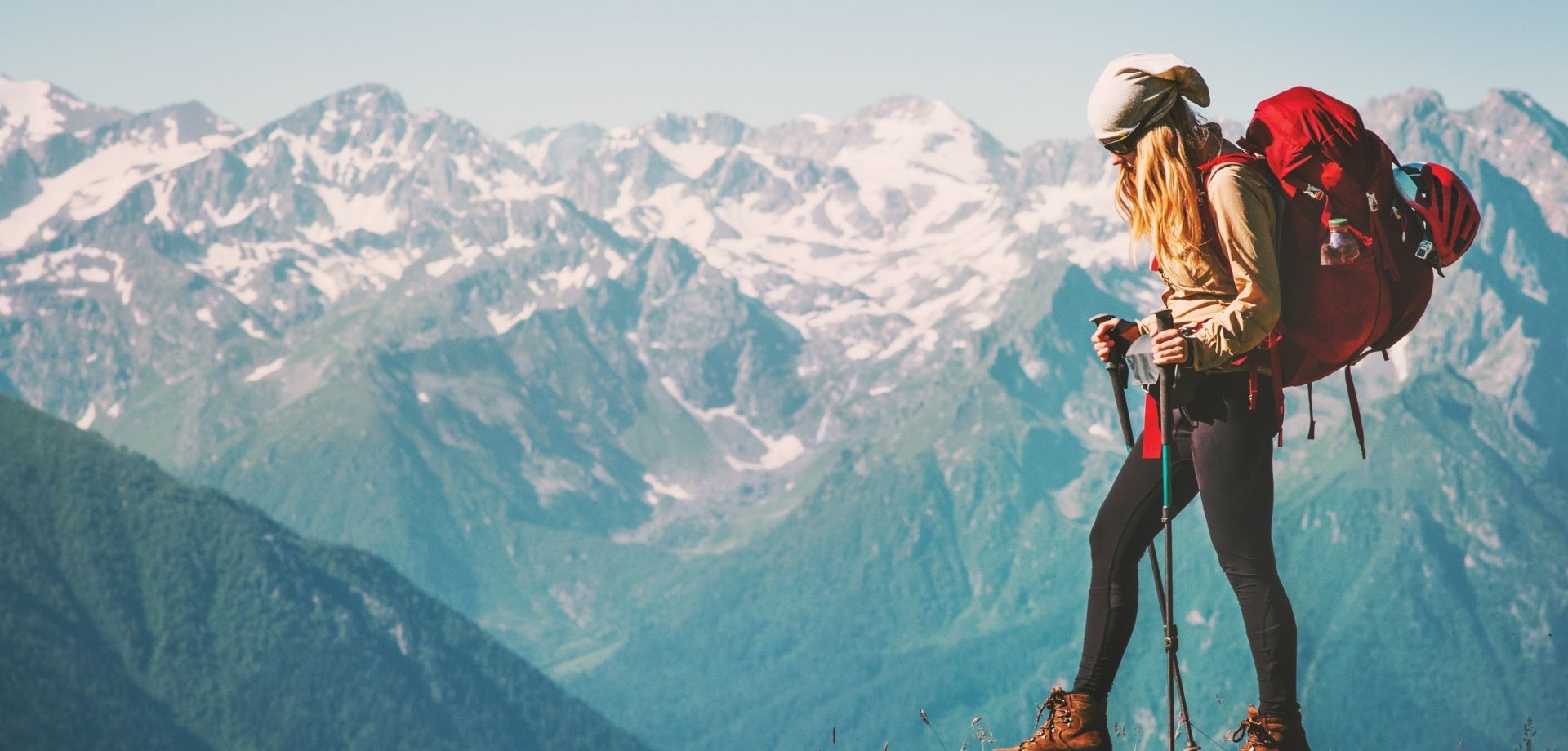Altitude Sickness
If you are planning to travel to high altitude, come and see us before you go and we can help you prepare – with information, advice, and medical supplies to prevent and treat mountain sickness and its complications.
Acute mountain sickness (AMS) is caused by rapid ascent to high altitude without allowing time for acclimatisation. Severe AMS can be fatal.
As a person ascends to higher altitude, atmospheric pressure and oxygen pressure fall. At an altitude of 2500 metres, oxygen pressure (the amount of oxygen in a given volume of air) is only half that at sea level.
AMS tends to occur within 2 days of exposure. It usually begins with loss of appetite, headache, nausea, vomiting, and sleeplessness – a bit like a bad “hangover.” This early, benign form may resolve, or progresses to a more serious, “malignant” form, and is an important warning.
Malignant AMS may be fatal. It may begin suddenly, affecting the lungs, the brain, or both. Features include headache, drowsiness, impaired coordination, abnormal or drunken behaviour, confusion, and impaired consciousness.
Age, sex or physical fitness have no bearing on your likelihood of getting altitude sickness, so if you are likely to be at risk, it is really important to be well-informed and well prepared.
What is Altitude Sickness?
Altitude sickness is unpleasant and if not taken seriously, can turn into something serious and life-threatening.
Oxygen levels at high altitude are lower than that at sea-level. If travellers ascend rapidly to high altitudes, the body sometimes doesn’t have sufficient time to acclimatise, resulting in altitude sickness. Flying into magnificent destinations such as Cusco in Peru, La Paz in Bolivia, travelling to Bhutan, or climbing Mt. Kilimanjaro, can have unpleasant or life-threatening consequences if you are poorly prepared.
What are the symptoms of Altitude Sickness?
Symptoms of altitude usually appear within 24 hours of reaching 2,500m above sea-level and higher.
Mild symptoms can be quite similar to those of a bad hangover, such as:
- headache
- nausea and vomiting
- dizziness
- tiredness
- loss of appetite
- shortness of breath
Symptoms usually worsen at night. Altitude sickness can progress rapidly to more serious forms affecting either the lungs or the brain.
Pulmonary oedema may develop – a build-up of fluid in the lungs, reducing oxygen absorption and leading to breathlessness even at rest. There is a cough, with white, pink or frothy sputum, and the lips may turn blue.
A build-up of tissue fluid may also occur in the brain – cerebral oedema.
Features include headache, drowsiness, impaired coordination, abnormal or drunken behaviour, confusion, and impaired consciousness. Progression to coma may be rapid.

Altitude Sickness Tablets for Your High-Altitude Adventures
Prepare for high-altitude travel above 2,500 meters with acetazolamide tablets.
When taken preventively, acetazolamide tablets help your body adjust more quickly to higher altitudes, ensuring a smoother and more enjoyable experience at your destination.
Acetazolamide can also help alleviate symptoms associated with altitude sickness when they occur, Acetazolamide tablets are your essential companion for altitude acclimatisation.
Come to us for a pre-travel consultation to discuss your plans for high altitude travel, or try our free online consultation today.
FAQs
High altitude destinations include popular locations that fall on the Andes mountain range in South America, such as Machu Picchu or La Paz in Bolivia. Other popular destinations include Tibet, Nepal, Bhutan or Tanzania (Mt Kilimanjaro).
Ascending slowly is the key to preventing altitude sickness, that includes flying directly to areas of high altitude. Ideally, choosing a longer trek with a slower ascent over more days will reduce your risk considerably. The most important factor is the altitude where you spend the night – hence the climber’s mantra for avoiding altitude sickness: “climb high, sleep low”. Ensure you maintain good hydration and nutrition throughout your ascent.
Many people who are doing serious trekking may choose to take a pulse oximeter with them. This is a small portable device that allows the monitoring of oxygen levels in the bloodstream.
The best treatment for altitude sickness is descent. Medication such as acetazolamide can help reduce symptoms, but if you think you have altitude sickness it is important for you not to ascend further – stop and rest where you are. Don’t climb to a higher altitude, stay put in order to acclimatise for at least 24 hours. If symptoms worsen, you will need to descend and seek medical assistance.

